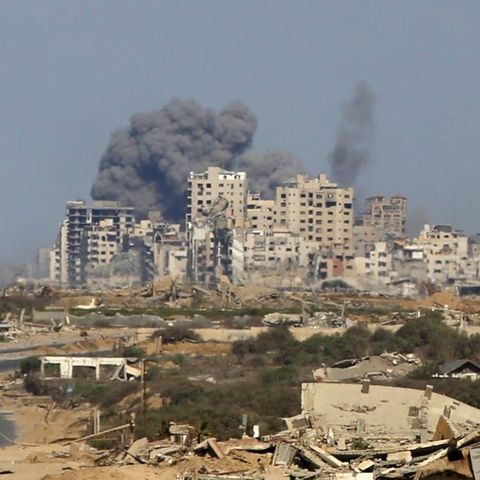Image: VOLKER Weihbold
The much-anticipated working paper for the World Synod of Bishops in October is here. The Catholic Church wants to become more open and attractive. The synod of bishops taking place in Rome in October as part of the multi-year global process for a more synodal church called by Pope Francis for the church is intended to deal with issues from the reality of life of many of its approximately 1.4 billion members. On Tuesday, the Vatican published the corresponding working paper, the so-called “Instrumentum Laboris”. It does not contain any concrete draft resolutions, but names questions to orientate the debate. For the first time, consecrated and unconsecrated believers will be given equal voting rights in the Vatican. So far, co-determination in world synods of bishops was only possible for bishops and religious superiors.
This vote is disabled
Please activate the category targeting cookies in your cookie settings to view this item. My cookie settings
Another novelty is the discussion stimulated in the key questions for the synod about possible access to the office of a deaconess, i.e. to the lowest degree of ordination before the ordination of priests and bishops. Furthermore, a stronger participation of women in managerial and responsible positions should be discussed. The same applies to the participation of unordained church members and possible new offices – also at the local level.
Offices could be revised
The questions suggest that the offices that already exist could be revised; this also includes possible exceptions for celibacy among priests. The reasons: On the one hand, many believers expressed their concern about the loneliness of priests, on the other hand, there are regions with very few ministers. A solution could be the ordination of married men to the priesthood, or the taking over of a parish by unordained Catholics. According to the working paper, this should also be discussed. Finally, the training of prospective clergy is to be changed in order to put a stop to clericalism.
This vote is disabled
Please activate the category targeting cookies in your cookie settings to view this item. My cookie settings
Instead of power and control, an attitude of service should be promoted among officials overall, an atmosphere of transparency, encouragement, inclusion and cooperation should be created. This also and especially applies to bishops. For them, the proposed decentralization of the Catholic Church should be of particular importance – more responsibility in the regional and national church on site, less with the Pope. The synodal process should change the understanding of authority – up to a possible canon law adjustment for more participation.
Openness to as many church members as possible is the focus of the “Instrumentum laboris”. Remarried divorced people should be just as welcome as queer people and those who live in polygamy, for example in Africa. The same applies to believers who feel less important or less desirable because of their skin color, origin or disability. With a renewed language – in liturgy, sermons, art and communication in all media – the church should become more accessible and attractive.
Big topic: abuse
The 71-page document deals with the subject of abuse by church officials or officials in various chapters. It is about the question of concrete steps to bring justice to the victims and survivors. In addition to sexual abuse, spiritual, financial, power and conscience abuse also explicitly play a role.
Other topics include poverty, climate change, migration, peace and reconciliation, and the participation of young and old in the Christian community. Deepening the dialogue with other Christians and religions should also be discussed.
After two years of local and continental consultations, two synods of bishops are now to follow in Rome at the universal church level. The meeting in October is primarily intended to deepen the proposed topics and prepare them for further treatment. A sensible methodology should also be worked out. For this purpose, the participants come together in group work and for discussions in the plenum.
The aim is to work out “paths on which we can continue together”, as stated in the working paper. At the second assembly of the synod of bishops scheduled for October 2024, concrete proposals for the pope will then be drawn up, on the basis of which he can then make decisions. He usually does this in a so-called post-synodal letter.
Source: Nachrichten




